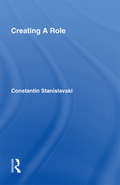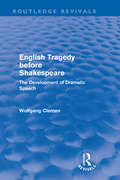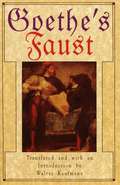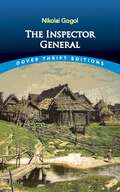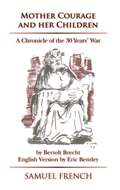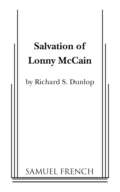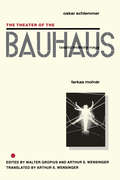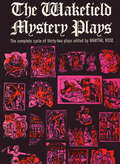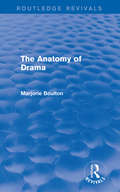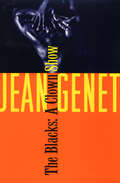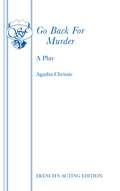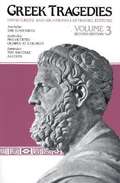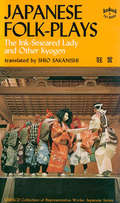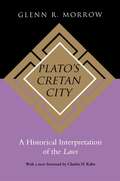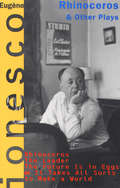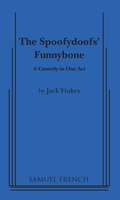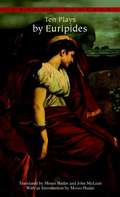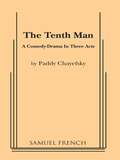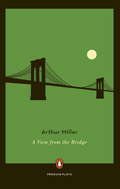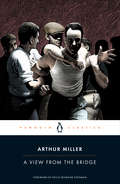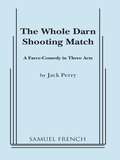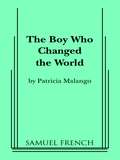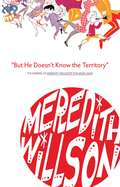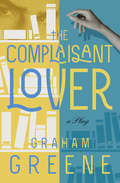- Table View
- List View
Creating A Role (Bloomsbury Revelations Ser.)
by Constantin StanislavskiCreating a Roleis the culmination of Stanislavski's masterful trilogy on the art of acting. An Actor Prepares focused on the inner training of an actor's imagination. Building a Characterdetailed how the actor's body and voice could be tuned for the great roles he might fill. This third volume examines the development of a character from the viewpoint of three widely contrasting plays: Griboyedov's Woe from Wit, Shakespeare's Othello, and Gogol's The Inspector General. Building on the first two books, Stanislavski demonstrates how a fully realized character is born in three stages: "studying it; establishing the life of the role; putting it into physical form."Tracing the actor's process from the first reading to production, he explores how to approach roles from inside and outside simultaneously. He shows how to recount the story in actor's terms, how to create an inner life that will give substance to the author's words, and how to search into one's own experiences to connect with the character's situation. Finally, he speaks of the physical expression of the character in gestures, sounds, intonation, and speech. Throughout, a picture of a real artist at work emerges, sometimes failing, but always seeking truthful answers.
English Tragedy before Shakespeare: The Development of Dramatic Speech (Routledge Revivals)
by Wolfgang ClemenFirst published in English in 1961, this reissue relates the problems of form and style to the development of dramatic speech in pre-Shakespearean tragedy. The work offers positive standards by which to assess the development of pre-Shakespearean drama and, by tracing certain characteristics in Elizabethan tragedy which were to have a bearing on Shakespeare’s dramatic technique, helps to illuminate the foundations on which Shakespeare built his dramatic oeuvre.
Goethe's Faust: Part One and Sections from Part Two
by Walter KaufmannThe best translation of Faust available, this volume provides the original German text and its English counterpart on facing pages. Walter Kaufmann's translation conveys the poetic beauty and rhythm as well as the complex depth of Goethe's language. Includes Part One and selections from Part Two.
The Inspector General (Dover Thrift Editions: Plays)
by Nikolai GogolConsidered the high point of Gogol's writing for the stage and a masterpiece of dramatic satire, The Inspector General skewers the stupidity, greed, and venality of Russian provincial officials. When it is announced that the Inspector General is coming to visit incognito, Anton, the chief of police, hastens to clean up the town before his arrival. Local officials scurry to hide evidence of bribe-taking and other misdeeds, setting the stage for the arrival from St. Petersburg of Ivan, a penurious gambler and rake who is promptly taken by the townspeople to be the dreaded Inspector General. Ivan, and his servant, Osip, soon take advantage of the situation with hilarious results. First performed in 1836, the play transcends regional and national boundaries to offer a biting, highly entertaining glimpse of universal human foibles and failings.
Mother Courage and Her Children
by Bertolt Brecht Eric BentleyDrama / 18m, 5f, extras / Interior, 5 Exteriors This German play was written in 1939 and was first produced in Zurich in 1941. In America, it was published in English right away (1941, by New Directions) but did not reach Broadway till 1963 - in a memorable production directed by Jerome Robbins and starring Anne Bancroft. It had, of course, by that time been produced to much acclaim all over the world. When Bertolt Brecht directed the play in Munich (1950), Eric Bentley, Assistant Director, at his bidding started to translate the play into English. He was eventually to make several different English versions of it. The most interesting of these is published here. It was a collaboration with the eminent French composer Darius Milhaud. Together they made this remarkable contribution to musical theatre.
Salvation of Lonnie McCain
by Richard S. DunlopThe Salvation of Lonnie McCain is a truly funny play, and a meaningful exploration of a vital part of the modern high school: the grade counselor, his problems, his successes, and his failures. Lonny, a bright senior, has earned a D average and is best known for his frequent misbehavior. His counselor tries to find out why so the boy can be helped. Other office problems involving numerous students make this fast-moving play both a delight and education for student and adult audiences alike. Lonny McCain's first tournament experience brought it three big trophies: Best Actor, Best Comedy, and Sweepstakes.
The Theater of the Bauhaus
by Farkas Molnar Lazlo Moholy-Nagy Walter Gropius Arthur S. Wensinger Oskar SchlemmerFew creative movements have been more influential than the Bauhaus, under the leadership of Walter Gropius. The art of the theater commanded special attention. The text in this volume is a loose collection of essays by Oskar Schlemmer, Laszlo Moholy-Nagy, and Farkas Molnár (who in an illustrated essay shares his vision of a total theatre space), with an introduction by Bauhaus leader Walter Gropius. Originally published in German in 1924, Die Bühne im Bauhaus was translated by A. S. Wensinger and published by Wesleyan in 1961. It was prepared with the full cooperation of Walter Gropius and his introduction was written specially for this edition.From Bauhaus experiments there emerged a new aesthetic of stage design and presentation, a new concept of "total theater." Its principles and practices, revolutionary in their time and far in advance of all but the most experimental stagecraft today, were largely the work of Oskar Schlemmer, Laszlo Moholy-Nagy, and their students. Profusely illustrated and startling in its typography (the work of Moholy-Nagy), the 1924 volume quickly became a collector's item and is now virtually unobtainable. Those interested in the stage, the modern visual arts, or in the bold steps of the men of genius who broadened the horizons of aesthetic experience will appreciate that this translation is available again.
The Wakefield Mystery Plays
by Martial RoseThis collection of thirteen dramatic works is translated from the famous manuscript of fifteenth-century Biblical enactments found near the English town of Wakefield. The cycle is notable for the "The Second Shepherd's Play," one of the great treasures of medieval literature.
The Anatomy of Drama (Routledge Revivals)
by Marjorie BoultonThis title, first published in 1960, is intended primarily to increase the understanding of drama among those who do not have easy access to the live theatre and who, therefore, study plays mainly in print. The author’s emphasis is on Shakespeare, but most forms of drama receive some attention. A lucid and lively study of the techniques of plot, dialogue and characterization will help the reader to a deeper appreciated of the problems and successes of the dramatist.
The Blacks: A Clown Show (Genet, Jean Ser.)
by Jean GenetGenet has strong claims to be considered the greatest living playwright. His plays constitute a body of work unmatched for poetic and theatrical power which reaches, in at least two of the plays The Balcony and The Blacks a pitch of inspiration and mastery.” Jack Kroll, Newsweek In form, it flows as freely as an improvisation, with fantasy, allegory and intimations of reality mingled into a weird, stirring unity. . . . Genet’s investigation of the color black begins where most plays of this burning theme leave off. . . . This vastly gifted Frenchman uses shocking words and images to cry out at the pretensions and injustices of our world. . . . One of the most original and stimulating evenings Broadway or Off Broadway has to offer.” Howard Taubman, The New York Times
Go Back for Murder
by Agatha ChristieDrama / 6m,4f / Unit Set. Imprisoned for poisoning her husband fifteen years earlier, Caroline Crale finds herself at death's door, and writes a letter expressing her undeniable innocence to her daughter Carla. Carla, aided by Justin Fogg - a former admirer of Caroline - persuades those present on the day of her father's death to return to the scene of the crime. When the witnesses reassemble, Fogg discovers the identity of the true murderer, and Carla discovers her true feelings for Fogg
Greek Tragedies, Vol. 3
by David Grene Richmond LattimoreIn three paperback volumes, the Grene and Lattimore editions offer a selection of the most important and characteristic plays of Aeschylus, Sophocles, and Euripides from the nine-volume anthology of The Complete Greek Tragedies. This volume contains Aeschylus: The Eumenides; Sophocles: Philoctetes, Oedipus at Colonus; Euripedes: The Bacchae, Alcestis.
Hitchcock's Films Revisited
by Robin WoodWhen Hitchcock's Films was first published, it quickly became known as a new kind of book on film and as a necessary text in the growing body of Hitchcock criticism. <p><p>This revised edition of Hitchcock's Films Revisited includes a substantial new preface in which Wood reveals his personal history as a critic -- including his coming out as a gay man, his views on his previous critical work, and how his writings, his love of film, and his personal life and have remained deeply intertwined through the years. This revised edition also includes a new chapter on Marnie.
Japanese Folk Plays: The Ink Smeared Lady and Other Kyogen
by Shio SakanishiThis collection of Japanese folk plays reveals a previously unknown and decidedly unaristocratic element to Japanese theater.<P><P>Interspersed between the stately, slower paced dramas of Japan's Noh theater are the delightful comic plays or interludes known as Kyogen. These brief plays evolved from the bawdy skits that were rousingly enjoyed by the plebeian populaces of the cities in feudal Japan some hundreds of years ago when Noh itself was a pastime and entertainment exclusively reserved for the aristocracy.Today they still provide delightful relief from the sustained and concentrated action of the Noh play that has changed very little throughout the centuries. Among the various forms of classical Japanese drama, the flamboyant action and brilliant coloring Kabuki has perhaps enabled it to be the most easily understood; and the Noh, in a number of excellent translations, has become widely known for its poetic beauty. But the Kyogen, equally deserving of attention, have remained relatively unknown. Only now, with this new edition of Miss Sakanishi's excellent translations, are they at last readily available to the Western reader.
Plato's Cretan City: A Historical Interpretation of the Laws
by Glenn R. MorrowPlato's Cretan City is a thorough investigation into the roots of Plato's Laws and a compelling explication of his ideas on legislation and social institutions. A dialogue among three travelers, the Laws proposes a detailed plan for administering a new colony on the island of Crete. In examining this dialogue, Glenn Morrow describes the contemporary Greek institutions in Athens, Crete, and Sparta on which Plato based his model city, and explores the philosopher's proposed regulations concerning property, the family, government, and the administration of justice, education, and religion. He approaches the Laws as both a living document of reform and a philosophical inquiry into humankind's highest earthly duty.
Rhinoceros and Other Plays: Includes: The Leader; The Future Is In Eggs; It Takes All Kinds To Make A World (Books That Changed the World)
by Eugène Ionesco“With outrageous comedy” this classic of Absurdist drama “attacks the most serious subjects: blind conformity and totalitarianism, despair and death” (The New York Times).In Rhinoceros, as in his other plays, Eugene Ionesco startles audiences with a world that invariably erupts in explosive laughter and nightmare anxiety. A rhinoceros suddenly appears in a small town, tramping through its peaceful streets. Soon there are two, then three, until the “movement” is universal. This is not an invasion of wild animals, but a transformation of average citizens into beasts, as they learn to move with the times. As the curtain comes down, only one desperate man remains.Rhinoceros is a commentary on the absurdity of the human condition made tolerable only by self-delusion. It shows us the struggle of the individual to maintain integrity and identity in a world where all others have succumbed to the “beauty” of brute force and mindlessness.
Spoofydoof's Funnybone
by Jack FrakesComedy / 7m, 9f / The spoofydoofs live peacefully under a tree-- their only worry is the Hurry Scurries. Gigles finds a funnybone that makes everyone laugh. His search party is chased by Polly and her dog-- and by gloomy faced Aunt Nettie, a Hurry Scurry. The spoofydoofs catch her and hand her the funnybone. She happily returns to Hurry Scurry land to spread laughter.
Ten Plays
by Moses Hadas John Mclean EuripidesThe first playwright of democracy, Euripides wrote with enduring insight and biting satire about social and political problems of Athenian life. In contrast to his contemporaries, he brought an exciting--and, to the Greeks, a stunning--realism to the "pure and noble form" of tragedy. For the first time in history, heroes and heroines on the stage were not idealized: as Sophocles himself said, Euripides shows people not as they ought to be, but as they actually are.
The Tenth Man: A comedy-Drama in Three Acts
by Paddy ChayefskyIn an old meeting room now used as a temple, a rabbi and various Jews meet for prayer on a winter day. They are not all devout; one is a comic atheist who says he only comes to the temple to keep warm and another is a young agnostic lawyer who has made a mess of his life and whom analysis is keeping from brink of suicide. One of the ten men who come this day brings his granddaughter who is in a trance. He believes she is possessed by a dybbuk; some of the others think she is just plain crazy. She glides from periods of lucidity into absolute irrationality and then into trance. During saner moments, she and the young agnostic are attracted to one another. The rabbi, convinced she has a dybbuk, arranges an exorcism. At the culmination of the ritual, it is the dybbuk of the young man that is exorcised, the one that has prevented him from loving anyone.
A View from the Bridge
by Arthur MillerSet in the 1950s on the gritty Brooklyn waterfront, A View from the Bridge follows the cataclysmic downfall of Eddie Carbone, who spends his days as a hardworking longshoreman and his nights at home with his wife, Beatrice, and orphan niece, Catherine. But the routine of his life is interrupted when Beatrice's cousins, illegal immigrants from Italy, arrive in New York. As one of them embarks on a romance with Catherine, Eddie's envy and delusion plays out with devastating consequences. This edition includes a forward by Philip Seymour Hoffman and an introduction by Arthur Miller.For more than seventy years, Penguin has been the leading publisher of classic literature in the English-speaking world. With more than 1,700 titles, Penguin Classics represents a global bookshelf of the best works throughout history and across genres and disciplines. Readers trust the series to provide authoritative texts enhanced by introductions and notes by distinguished scholars and contemporary authors, as well as up-to-date translations by award-winning translators.From the Trade Paperback edition.
A View from the Bridge (York Notes Ser.)
by Arthur Miller Philip Seymour HoffmanSet in the 1950s on the gritty Brooklyn waterfront, A View from the Bridge follows the cataclysmic downfall of Eddie Carbone, who spends his days as a hardworking longshoreman and his nights at home with his wife, Beatrice, and orphan niece, Catherine. But the routine of his life is interrupted when Beatrice's cousins, illegal immigrants from Italy, arrive in New York. As one of them embarks on a romance with Catherine, Eddie's envy and delusion plays out with devastating consequences. This edition includes a forward by Philip Seymour Hoffman and an introduction by Arthur Miller.For more than seventy years, Penguin has been the leading publisher of classic literature in the English-speaking world. With more than 1,700 titles, Penguin Classics represents a global bookshelf of the best works throughout history and across genres and disciplines. Readers trust the series to provide authoritative texts enhanced by introductions and notes by distinguished scholars and contemporary authors, as well as up-to-date translations by award-winning translators.From the Trade Paperback edition.
The Whole Darn Shooting Match: A Farce-Comedy in Three Acts
by Jack PerryZany exploits, hilarious antics and wild ideas follow fast and furiously throughout this comedy about the advertising world. It is set in the Creative Room where a flamboyant TV commercial writer, an alcoholic artist, a flippant girl Friday, and their beloved leader, the Creative Director, engage in a running feud with the new president of the company, an efficiency expert, the office boy and everyone else who dares to interfere with their off beat rules of office conduct.
The Boy Who Changed World
by Patricia MalangoHigh School \ Comedy \ 8m, 6f, optional extras \ 3 exteriors or 1 set. \ A prehistoric teenager has a problem: he is flunking fighting, hunting, and fishing and he faces the certain death of exile. To impress glamorous Dorothy, he invents painting, poetry, and music all humiliating failures. Just in time to save himself he invents the wheel and the villagers reward him with the status of manhood; it even looks as if his father will be elected mayor after all. Dorothy is available now, but George has learned the meaning of love and chooses another.
But He Doesn't Know the Territory
by Meredith WillsonComposer Meredith Willson once described The Music Man as "an Iowan's attempt to pay tribute to his home state." Never once forgetting his roots, Willson reflects on the ups and downs, surprises and disappointments, and finally successes of the making of one of America's most popular musicals. His whimsical, personable writing style will bring readers back in time with him to the 1950s to experience firsthand the exciting trials and tribulations of creating a Broadway masterpiece. A newfound admiration for The Music Man--and the man behind the music--is sure to follow.
The Complaisant Lover: A Play
by Graham GreeneA “delicious . . . champagne cocktail” of a stage comedy about a sporting British couple’s marital—and extramarital—propositions (New York Herald Tribune). Victor Rhodes, a hearty and amiable dentist in North London, has what he thinks is a happy marriage. It’s stable, routine, and comfortably platonic. Five years and counting, his wife, Mary, feels the same way. That’s why she’s taken a secret lover—their good friend, Clive Root, an antiquarian bookseller for whom relieving complaisant husbands of their duty is a pleasure. But when Mary and Clive connive a rendezvous in Amsterdam, their getaway takes a surprising turn with a visit from Victor. What’s now at risk for Mary is more than a marriage to a man she genuinely loves but also a perfectly fulfilling affair with a man she truly desires. In this “sin-and-tonic work of art,” Mary isn’t about to give up either of them (Spectator). “An expert at badinage full of quiet English verve, Mr. Greene writes with smooth sophistication” in his last play—a comedy of lies, cheats, and betrayals—produced by Sir John Gielgud at the Globe Theatre, London, in 1959 (The New York Times). Two years later, it debuted on Broadway, with a cast including Sandy Dennis, Michael Redgrave, and Gene Wilder.
